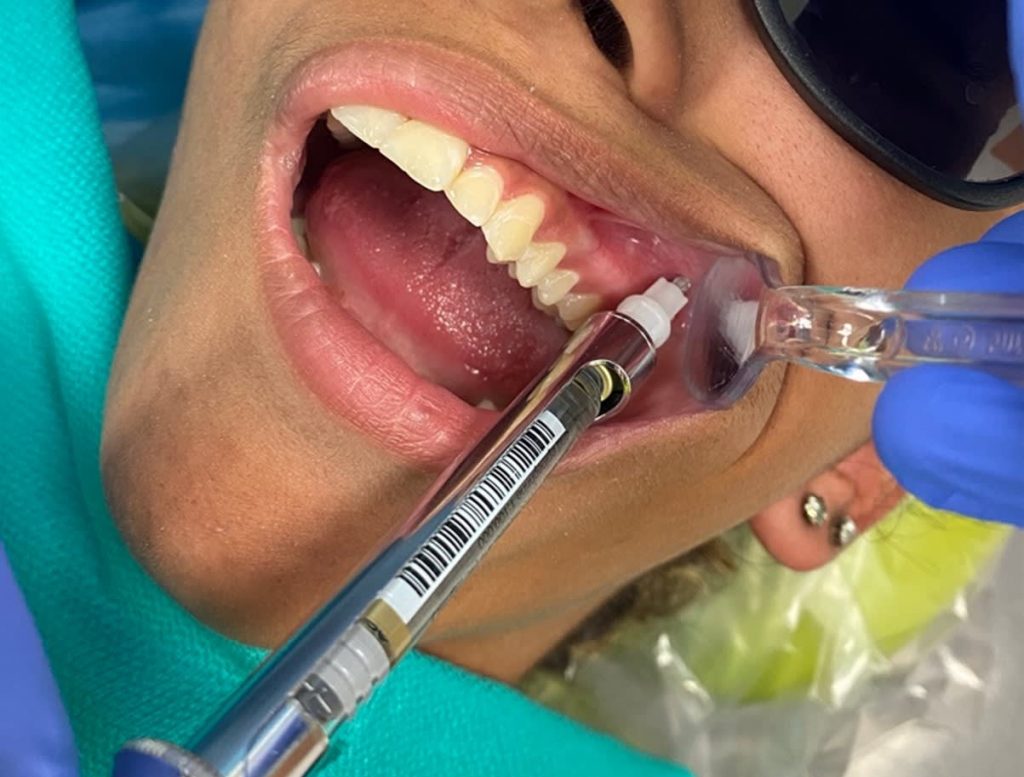Let’s Get Technical
“Dental nerve blocks” is the technical term for dental anesthesia. The most commonly used anesthesia in dentistry is Novocain.
Dental nerve blocks are an exact science. General dentists and dental specialists go through years of study to become licensed, and there are few professionals more thoroughly trained in administering the dental nerve block or numbing the face.
The most common dental nerve block is the inferior alveolar nerve block. This type of block numbs the lower jaw during dental treatment and enables patients to lose sensation temporarily in their teeth.
There are many specific blocks dentists use, depending on the area to be treated. Each block, or shot, numbs a target area. For example, the lower lip and chin is numbed by the mental nerve block; the tongue is numbed by the lingual nerve block.
Your dentist is proficient in administering dental nerve blocks. He or she is highly trained and most people have no problems getting numb. But in certain instances, problems arise when delivering dental nerve blocks.When Blocks Get Blocked
Anatomical — A bodily problem that limits your dentist’s access to the nerve needing to be numbed.
Pathological — Infection, inflammation or other medical reason can make nerve blocking a challenge to your dentist.
Pharmacological — If the patient is a chronic alcoholic or drug abuser, getting numb can prove to be impossible.
Psychological — Fear, dental anxiety or extreme dental phobia can hamper the body’s ability to become numb for dental procedures.
Poor Technique — A dentist can sometimes misaim; since dentists are extensively trained, this is a very rare occurrence.
When administering anesthesia in preparation for dental work, dentists usually wait 3 to 5 minutes for the block to take effect. This gives the patient a chance to get really numb before work begins and gives the clinician the opportunity to ensure adequate numbness of the area. If, for any reason, the patient is not numb after the initial series of injections, a dentist will typically repeat the block.
Dental nerve blocks are essential so that you can be as comfortable as possible during dental treatments, such as a tooth filling or a root canal. If you have questions about the type of nerve block you’ll be receiving at your next dental appointment, have a frank discussion with your dentist. Call us if you don’t have a dentist, yet. A great dentist will be happy to put your mind at ease.

